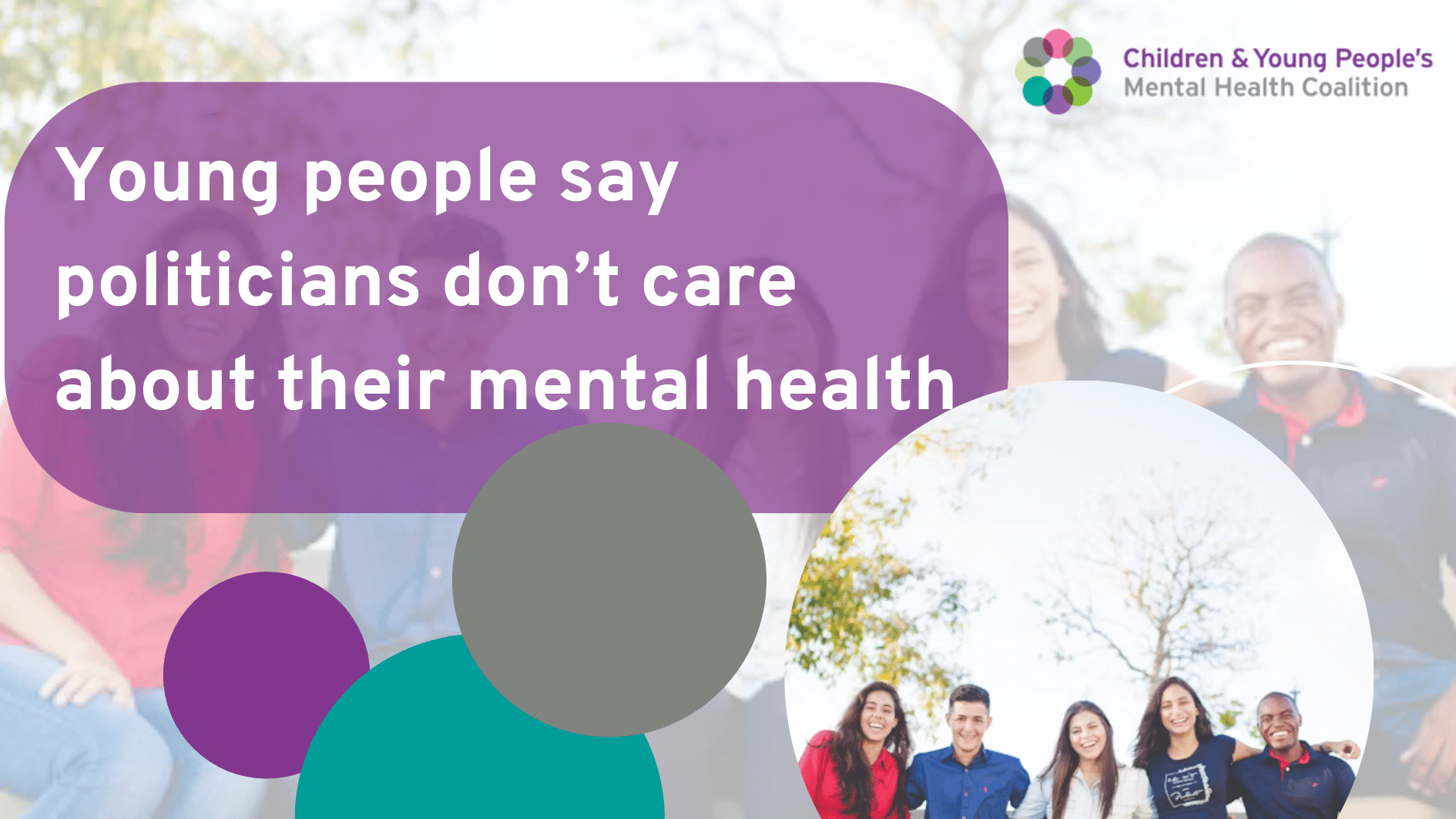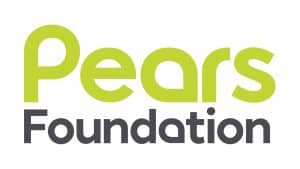Young people don’t think politicians care about their mental health. Voters think politicians have not done enough to tackle the issue. And there’s deep concern from parents that the state of mental health services could negatively impact their children’s futures.
That’s according to new research from three major mental health organisations – Children and Young People’s Mental Health Coalition, Mind and YoungMinds – released today.
The charities say the findings should serve as a wake-up call for politicians on the need for mental health to be a priority this election and for the next government. They add that there are very clear solutions that should be taken forward.
Politicians don’t care about or understand young people’s mental health
Less than half of young people (43%) say the main political parties running for the next election care about their mental health1. And nearly three in five adults (59%) say that politicians have not done enough on this issue over the last decade and less than a quarter of voters (23%) think it will be prioritised in this election2.
When asked why they don’t think the main political parties care about their mental health, over half of young people who thought this (52%) said there was a lack of understanding of what they are going through3. There is also a sense from a sizeable proportion (41%) of young people that politicians don’t believe the scale of the issue4.
Parents fear over state of mental health services
9.5m million parents, which equates to almost half (49%) of all parents, say they’re concerned the state of mental health services will have an impact on their children’s futures.5
The state of mental health services was an even greater concern for parents than climate change, jobs, education, crime, and war and conflict6.
Youth mental health crisis
Latest NHS data shows probable mental health problems have skyrocketed in the last few years: 1 in 5 young people now have a probable mental health condition up from 1 in 9 in 20177. And there are more referrals to services than ever before, with a huge unmet need in the wider population of young people.
Fund the hubs
The organisations are calling on the next government to start the rollout of early support hubs, to provide services for young people up to the age of 25 and give young people a place to get help before they’re in crisis (a policy backed by 67% of voters8), within its first year.
Evidence shows existing hubs can engage certain young people who have left school, people from LGBTQIA+ and Black and minority ethnic communities more readily than Children and Adolescent Mental Health Services and school counselling.
Chloe, 21, YoungMinds Activist, said:
“I hope the next government makes ending the current mental health crisis a priority, particularly with a focus on young people’s mental health. From personal experience, I know early intervention can be crucial in both prevention and recovery, and I hope the next government funds and supports the establishment of early support hubs, and more mental health services for young people.”
Anonymous parent:
“My child had started self-harming and engaging in risky behaviours before they got any help. By then, it was too far down the line, and we continued to experience crisis after crisis, which resulted in an inpatient admission.
“It really didn’t need to be this way. If early help had been available, if I had been believed when I asked for help, if there were not long waiting lists, if school had understood, maybe our story would be different.
“We did come out the other side, but we are one of the lucky families, because not every child makes it. That is the devastating reality of this lack of investment in children’s mental health. Lives are lost or changed forever, and this cannot go on. There are an ‘army’ of parents out there who are fighting for our children. It’s time to stop having to fight, because we deserve better.”
Dr Sarah Hughes, Chief Executive of Mind, said:
“The reality is the mental health system is at breaking point. The scale and severity of mental health need among children and young people is spiralling, but the level and quality of care needed is simply not there.
“When young people and their parents speak together with one voice, politicians need to listen. Investing in services like early support hubs for children and young people is a crucial way for politicians to show they understand the mental health challenges young people are facing and that they’re committed to tackling the issue. We can’t afford to wait a moment longer to prioritise mental health for current and future generations.”
Amy Whitelock Gibbs, Chair of the Children and Young People’s Mental Health Coalition said:
“The mental health of children and young people could be a critical deciding factor in the next election. Our polling lays bare that a significant majority of voters feel political leaders have failed to prioritise this vital issue over the last decade – and less than a quarter have any hope this will change with a new government.
“It’s clear that voters of all ages want change – from more investment in mental health services to strong community support through schools and early help hubs. We call on candidates from across the political spectrum to finally put the mental health of babies, children and young people at the heart of this election and create the change that is so desperately needed.”
Laura Bunt, Chief Executive of YoungMinds, said:
“Mental health services are at breaking point, but too little action and too many broken promises are impacting young people’s faith in politics as well as their mental health. We need solutions that look honestly at the systems around young people and make changes now to stop things getting worse. That means making sure young people have access to support when they need it through early support hubs but also that they get the best education, can heat their homes as well as eat well, and can look forward to a future that is bright and promising.
“Given the state of play, young people and mental health should be at the heart of this election. Politicians need to listen to the voices of young people and start to tackle the deep-rooted causes of the mental health crisis. We need a society that makes them want to belong, that shows them they and their mental health matters, otherwise we will all suffer in the long run.”
Notes to editors
- Research conducted by More in Common (Children and Young People’s Mental Health Coalition & Mind) and Censuswide (YoungMinds).
More in Common for CYPMHC
- The total sample size was 2,037 adults in England. The data is weighted on age/gender interlocked, education, ethnicity, region, and 2019 General Election vote to be representative of the English population.
- The polling was undertaken between 17th and 19th May 2024 and was carried out online.
More in Common for Mind
- The total sample size was 2,042 in England, Scotland and Wales. The data is weighted on age/gender interlocked, education, ethnicity, region, and 2019 General Election vote to be nationally representative of the population.
- The polling was undertaken between 1-3 of May 2024 and was carried out online.
Censuswide for Youngminds
- The research was conducted by Censuswide with 2,010 UK 18-25-year-olds (weighted to be nationally representative based on age, gender and region).
- Polling conducted between 16-24 April 2024.
- Censuswide abide by and employ members of the Market Research Society which is based on the ESOMAR principles and are members of The British Polling Council.
- Respondents were given a scale to use when answering some questions. Answers have been grouped together in the same way throughout the report, to give overall percentages. For example, ‘strongly agree’ and ‘somewhat agree’ have been combined to create one netted ‘agree’ statistic.
- Prevalence data on children and young people’s mental health is available via this link: https://digital.nhs.uk/data-and-information/publications/statistical/mental-health-of-children-and-young-people-in-england/2023-wave-4-follow-up





